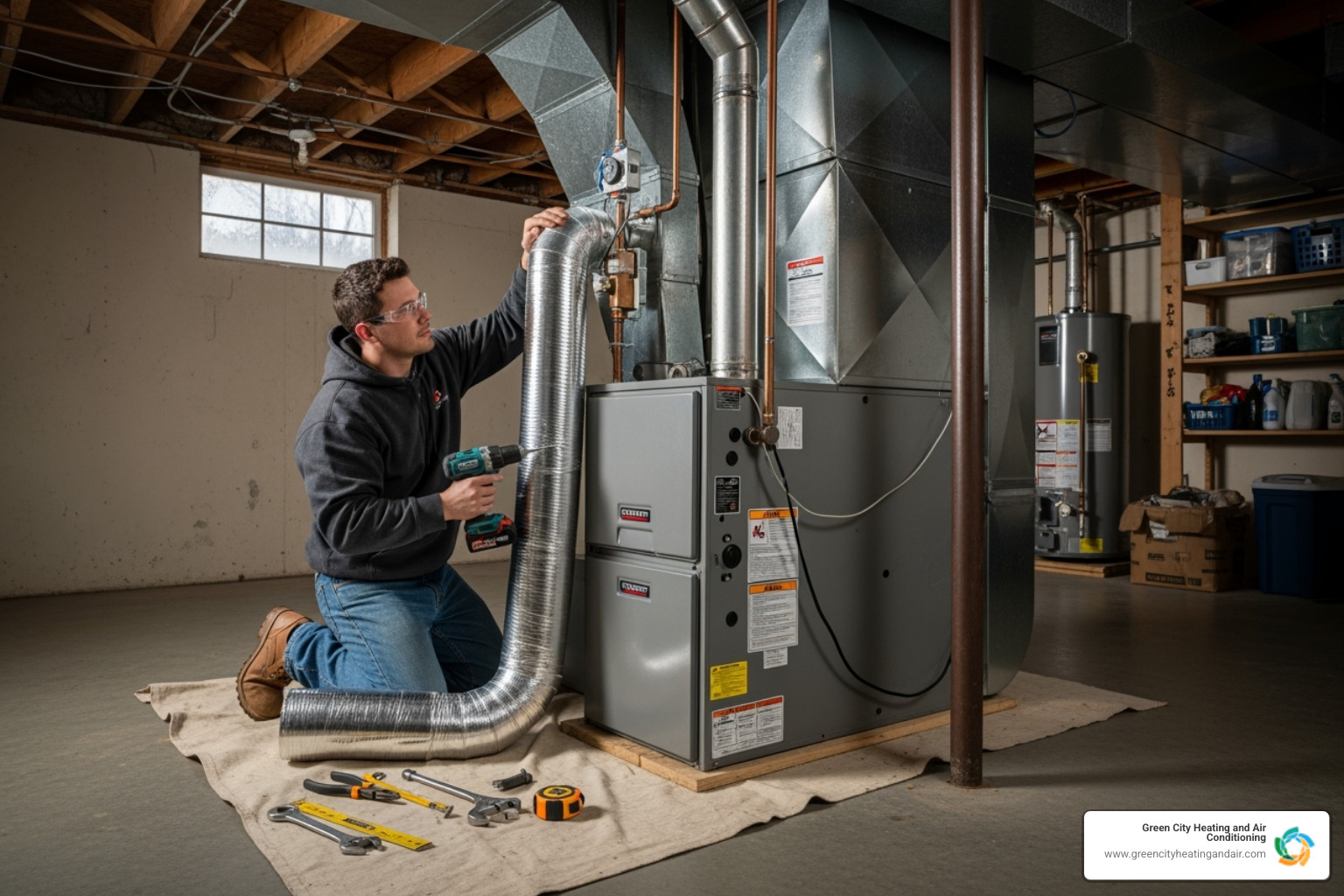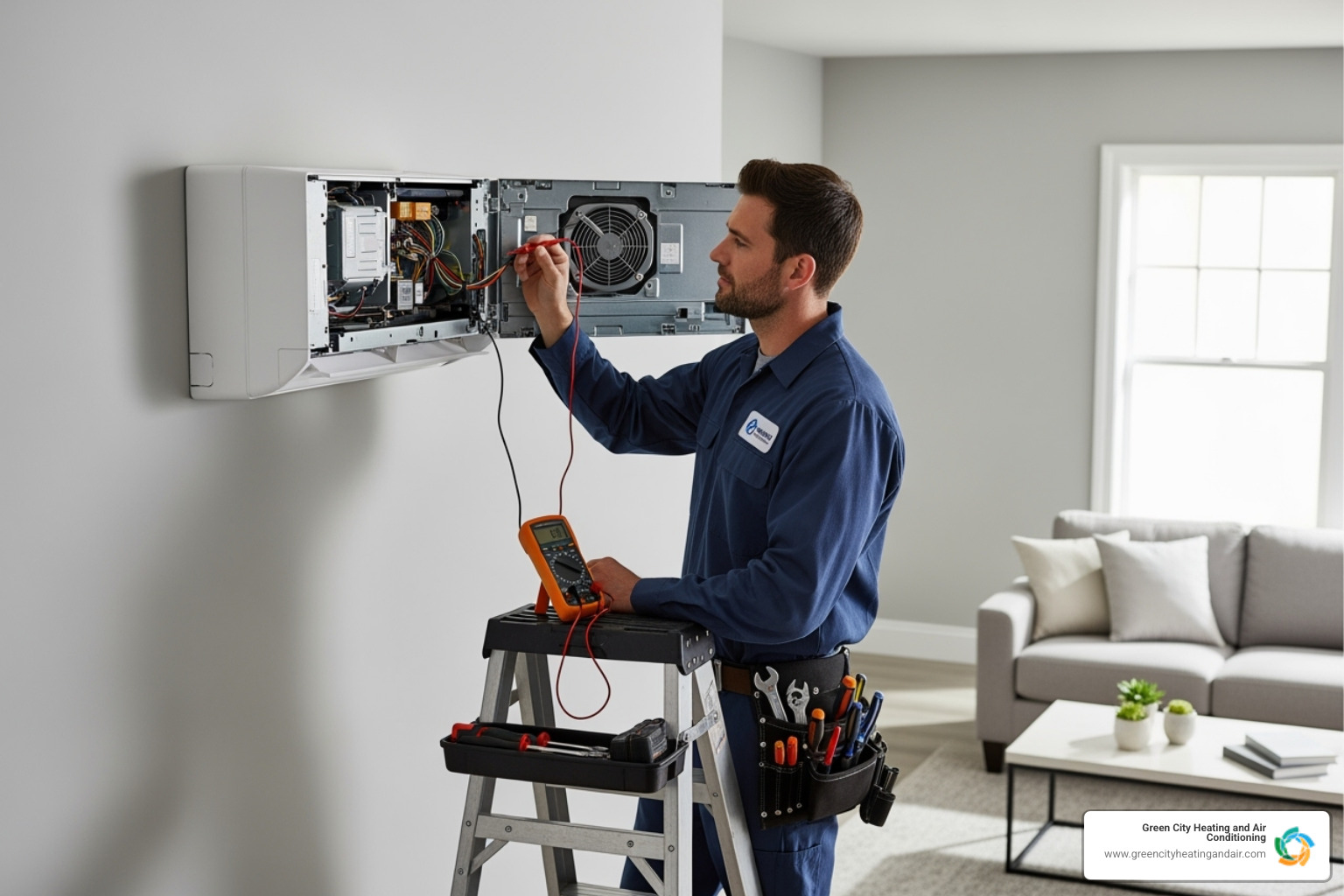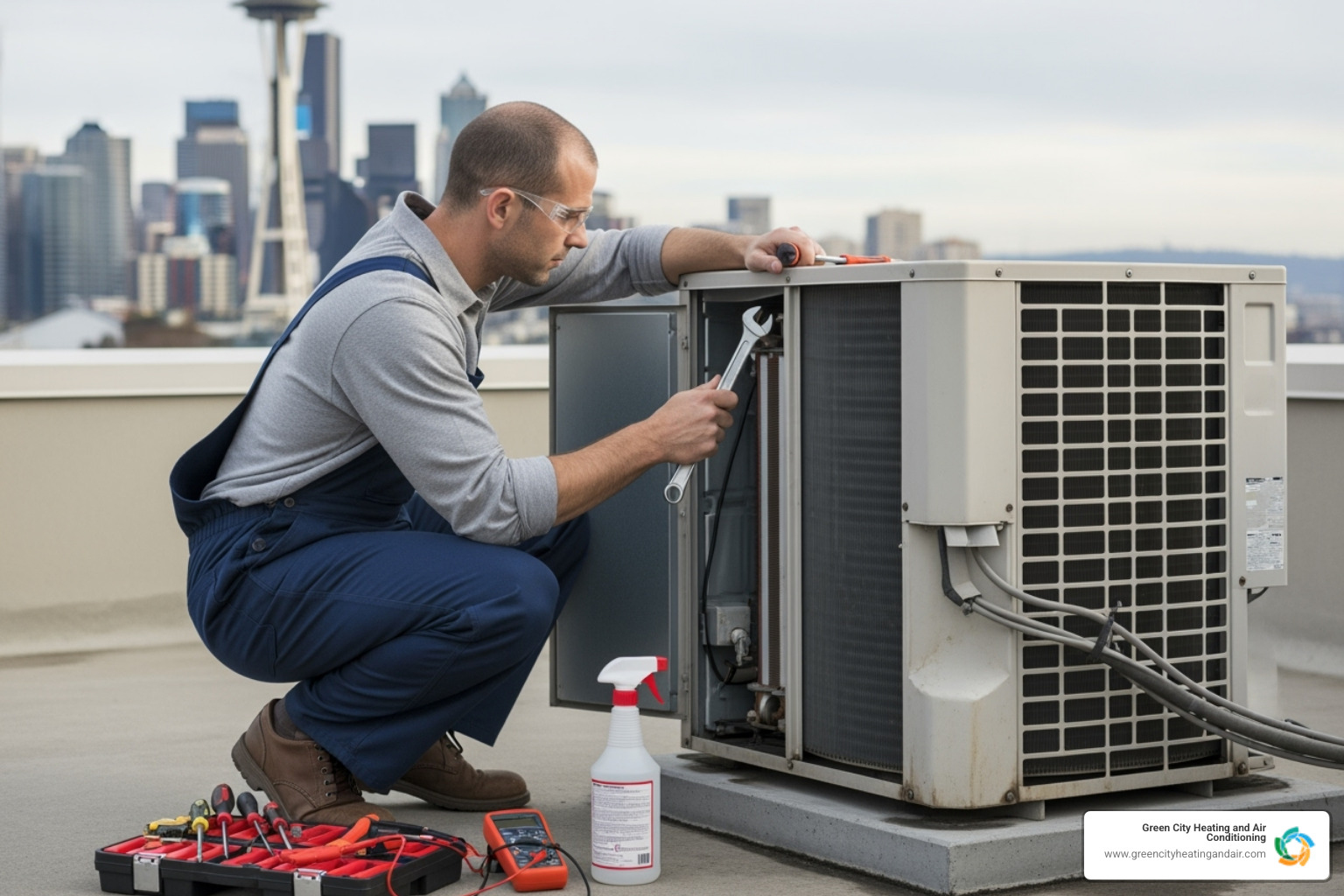When your AC stops cooling properly in the middle of summer, discomfort can set in quickly. In many Medina homes, one of the most common causes of this issue is a faulty fan motor. This component plays a key role by pushing air over the evaporator coil and circulating it into living spaces. If it's not working correctly, your system might run but won’t deliver adequate airflow, or it might not start at all. Homeowners often notice unusual symptoms before the AC completely stops functioning. Recognizing those early signs can help prevent a full system breakdown during high temperatures.
Given Medina's warm summers and increased reliance on cooling systems, keeping your AC running efficiently is more important than ever. Many homes in the area rely heavily on AC units during July and August. Regular use, combined with wear and tear, causes parts like the fan motor to struggle. Knowing what to look for helps you act early, avoid unexpected failures, and maintain lasting indoor comfort.
Common Signs of AC Fan Motor Problems
AC problems rarely come without warning. Spotting issues early can minimize repair costs and keep your home consistently cool. If you think something may be wrong with your AC fan motor, consider the signs below:
- Unusual sounds: Buzzing, humming, or clanking noises from the outdoor unit may signal that the motor is struggling to start. These sounds often point to mechanical or electrical trouble.
- Intermittent fan operation: If the AC fan starts, stops, and starts again in short cycles, this may indicate an overheating or faulty motor.
- Reduced airflow: If certain rooms no longer feel as cool or the airflow seems weak, it could be due to a malfunctioning motor. Check the air vents across your home.
- Outdoor fan not running: When the indoor unit works but the outdoor fan does not turn, the motor may have failed entirely.
One homeowner in Medina recently noticed that although their system was on and making a humming sound, no air was coming through the vents. Upon further inspection, they found the fan in the outdoor condenser was not spinning. The cause was a bad capacitor linked to the fan motor, a part that generally requires testing and replacement by a technician.
Catching these clues early can protect the rest of your AC components. Ignoring them could lead to further problems like compressor damage or circuit breaker trips.
Potential Causes of AC Fan Motor Issues
Fan motor problems usually come from common sources that build up over time. Understanding the potential causes can help you explain the issue clearly once technicians arrive.
- Electrical wiring problems: Loose connections, exposed wires, and old fuse boxes often cause the motor to stop functioning. In older homes, wiring that hasn’t been updated may be the culprit.
- Faulty capacitors: The capacitor helps the fan motor turn on and stay running. If it fails, the fan may not spin, and the motor might produce a humming sound.
- Overheating from lack of maintenance: Dust on fan blades or around the outdoor unit restricts airflow and forces the motor to work harder. When it overheats, the motor shuts down.
- Mechanical wear and tear: Years of use naturally wear down the moving parts inside the motor. Bearings can dry out, or the motor shaft can seize without proper lubrication.
- Debris in the fan housing: Twigs, leaves, and even pests can jam the blades. When the fan blades meet resistance, the motor can strain and ultimately burn out.
Even newer AC systems are not immune to these problems. Skipping seasonal maintenance or allowing debris to build up around the outdoor condenser unit can speed up wear. Since one problem can trigger another, addressing early signs is the best approach. A jammed fan blade may break the capacitor. A burned capacitor may damage other components.
Troubleshooting Tips for Homeowners in Medina
If you suspect there's an issue with your AC fan motor, there are a few troubleshooting steps you can take before scheduling professional service. These won't solve serious electrical or mechanical issues, but they can help narrow down possible causes or prevent further damage while you wait for our technicians.
1. Check the thermostat
Make sure the thermostat is set to “cool” and the fan mode is on either “auto” or “on.” If the display doesn’t light up or looks unusual, a dead battery could be affecting system operation.
2. Reset the breaker
If the circuit breaker has tripped, your AC may not function. Open your breaker panel and reset the switch linked to the AC system. If it immediately trips again, that’s a sign of a motor or wiring issue, and service should be scheduled without delay.
3. Inspect the outdoor unit
Look through the protective cover of the outdoor unit. Remove any grass, leaves, or blockages around or inside the unit that could obstruct airflow. If debris has jammed the blades, never attempt to remove it by force. Instead, stop the system until our professionals can inspect and clear it.
4. Listen carefully
Turn the unit on and listen for any clicking or humming without fan movement. These signs usually point to a bad motor or failed capacitor. Do not attempt repairs on these parts yourself—they must be handled by trained professionals due to the risk of electrical shock.
These steps can give you clarity on what part of the system may be affected. If none of them resolve the problem, it’s time to involve our team.
When to Call Our Professionals
Working on AC components, especially electrical ones, comes with personal safety risks and a chance of damaging the unit further. When you're faced with the symptoms below, it is time to bring in our professionals for a proper assessment and repair.
- The outdoor fan never turns on, even after all resets
- Loud grinding, buzzing, or clicking when the unit powers on
- Air is not flowing through your ducts or vents
- The unit keeps running but never cools, or shuts off too quickly
- You see warped blades, wiring damage, or burnt-looking parts
Multiple issues can exist at the same time when the fan motor fails. Our technicians will run a complete check on relevant components like control boards, wiring, and capacitors. Without this full check, replacing a single part might only fix the problem temporarily.
If your cooling feels inconsistent or your indoor air seems stagnant even with the system running, you could be pushing your AC system into more stress. It’s best to stop using the unit and wait for a full inspection.
Restoring Comfort and Efficiency to Your Medina Home
When the fan motor fails, your entire AC system can suffer, especially in peak summer months in Medina. Timely repairs help protect your AC from further issues, reduce energy waste, and extend lifespan. Delays only increase the risk of worsening problems and more expensive replacements, like the compressor.
Seasonal maintenance and repairs by trained technicians can make a big difference. Minor signs such as dirt on blades or fading capacitors, when caught early, can save the entire unit from breakdowns. Keeping an eye on unusual cooling behavior or loud noises can give you the chance to act before damage spreads.
When uncomfortable hot spots, poor airflow, or odd sounds become common, don’t wait. Those are usually warnings that your AC system needs attention. With prompt, professional support for AC repairs or full AC installation in Medina, your household can return to a comfortable, efficient state.
If your cooling system continues to show signs of strain and uneven performance, it may be time to consider professional AC installation in Medina to improve efficiency and extend your system’s life. Green City Heating and Air Conditioning is here to help with expert solutions and thorough assessments tailored to your home’s needs. For a quick estimate or to book a service visit, please contact us today.
More Blogs
Latest
insights and tips

Warmth Unleashed: The Ultimate Seattle Furnace Installation Handbook

Emergency Ductless AC Repair in Bellevue: Get Your Cool Back Fast










